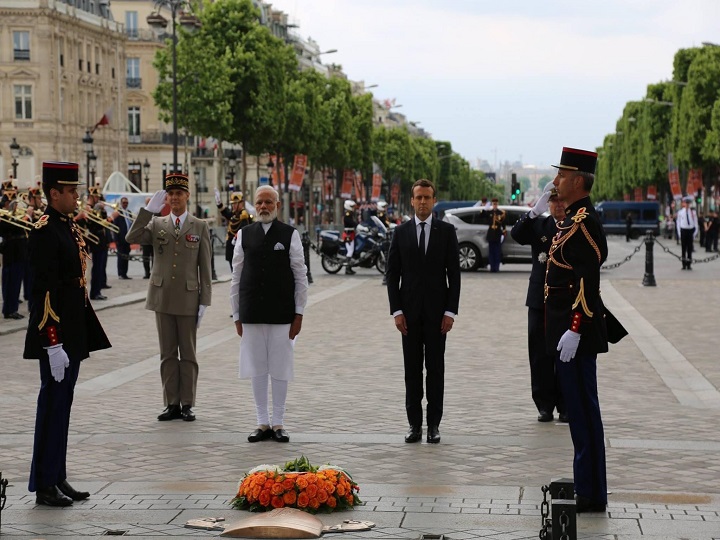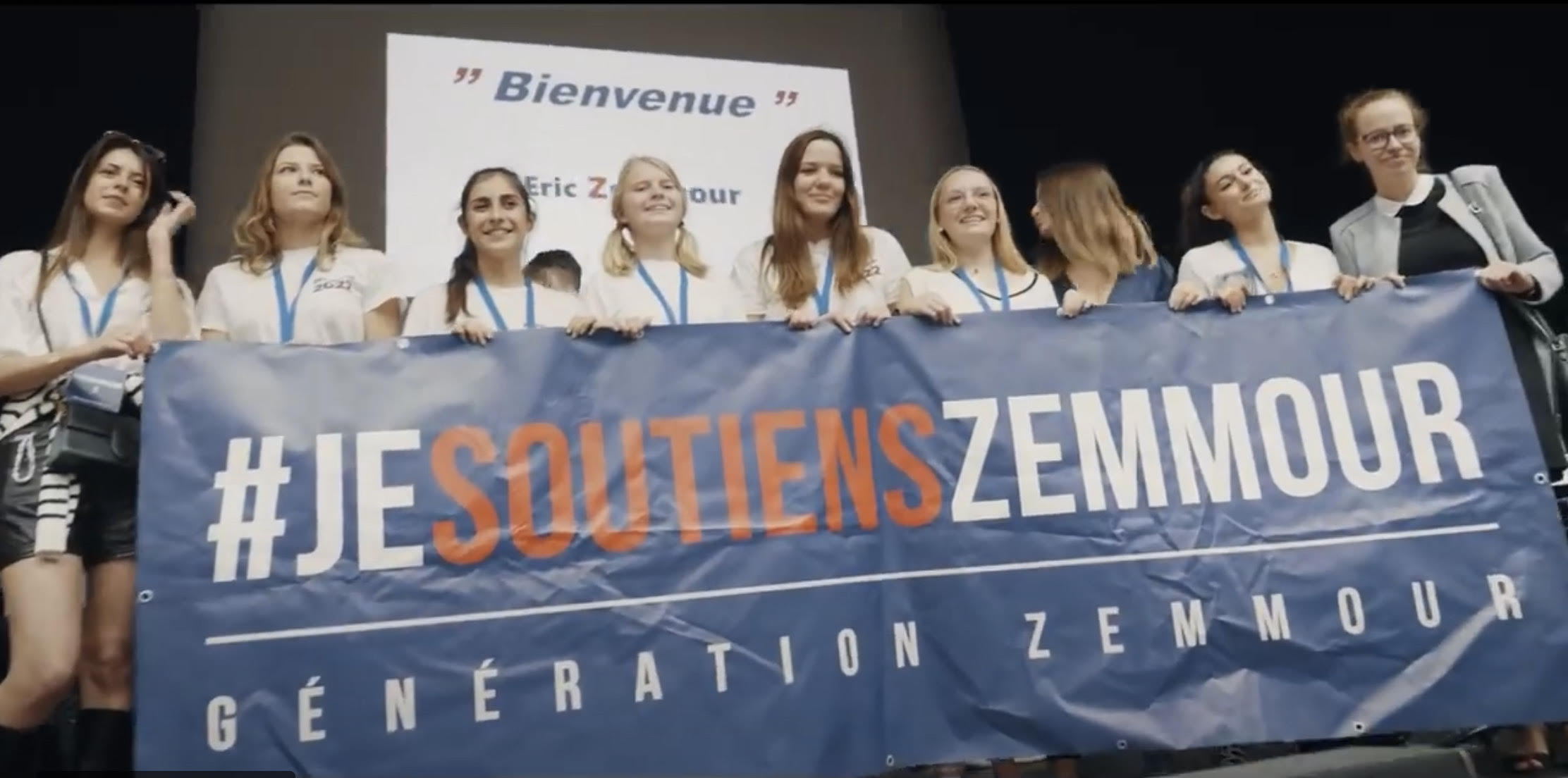A non-resident Indian citizen based in Paris, Akshay Bakaya has been teaching Hindi for the last 30 years to French and other foreign nationals, many of whom have made a name for themselves in diplomacy, academia and classical arts. In other words, he has been a vehicle of India’s soft power in France. He spoke to Aarti Tikoo Singh, Editor-in-Chief of The New Indian about how India’s current image in the West has changed in recent years. Excerpts of the interview:
When you left for Paris in the 1980s, what was India’s image like in France at the time?
In those less “connected” times, the French media was less informed or interested in contemporary India. The most convenient way to sum up the complexities of India was the phrase “land of contradictions”. Among the French youth, there were two attitudes to India.
One was fascination with Indian culture, religion and spirituality. People brought up especially in God-fearing religions, liked that India offered a panoply of God-loving traditions.
Some were drawn to a spiritual culture where a seductive god in human form is loved by devotees rather than feared. Some were in awe of the fact that India was the only civilization where female gods had survived. Bright and rebellious minds and feminists in France loved it. Others were attracted to the free-thinking schools in Hinduism.
The contradictory image, and reality of India, was of poverty and hunger and the total neglect of public health, education, transport, water, electricity etc.
Has India’s soft power weakened in Europe and particularly in France over time?
Yes, it has. The narrative about Modi’s “discriminatory Hindutva regime” and “Hindu terror” became the dominant one in French academia and media, and has not been effectively challenged. That’s because older, competent historians and authors who were experts of Sanskrit and Indic traditions have been marginalized by the “political scientists”.
Are you holding political scientists responsible for projecting India in a negative light in France?
It is the academically certified India-scholars, most notably my old friend Christophe Jaffrelot, a prolific author not just of France, but the worldwide ‘guru of Hindutva and Modi studies’. A number of his younger disciples have taken over Indian studies in research and teaching institutions.
French journalists too take Jaffrelot as the final authority on anything Indian, and we rarely see positive reports or documentaries even on non-controversial and promising themes. If by chance some mention of India in another context does come up, that too becomes an ideal occasion to slip in a poisonous comment on Narendra Modi. It’s obsessive.
Why are they presenting India in such hateful terms?
There is a vast international ecosystem that holds promise for academic and journalistic careers, or junkets in the seminar and film festival circuits, especially in the US universities. Identity-based woke movements and organizations are very active in the US and they welcome with open arms, militants and experts working to prove what a dangerous place India is for women, lower castes, Muslims, Christians, gays, and social justice activists. With them you get only deafening silence on Muslim women’s rights, Islamist violence and homophobia.
Islamist organizations like the CAIR (Council on American Islamic Relations) were very active, with ideologues from JNU, AMU, Jamia in spreading alarmist fake news about India’s Citizenship Amendment Act (CAA) and National Register of Citizens (NRC) and projecting them to be anti-Muslim.
Before Donald Trump’s Delhi visit, for months panic was cynically built to a crescendo so that on the chosen day, mass violence would break out in the Indian capital, humiliating both the “Islamophobes” or “fascists”, Trump and Modi, in one go before the “world media”.
The mastermind of the movement, JNU research scholar and correspondent of Turkish TRT media and The Wire, Sharjeel Imam (IIT/JNU) was brazenly clear about the separatist, anti-India agenda of his “anti-CAA” movement.
So some French and Indian citizens are together campaigning against India in the West?
Guided especially by Christophe Jaffrelot, the French Political Science Foundation (Sciences Po) and its Center for International Studies and Research (CERI) of which he has been the Director, have regularly organized Franco-Indian seminars, exchanges, publication programs etc. fully financed by French public funds.
As proof of fairness and of “variety” in voices and views, they invite, along with academics, some journalists like Prem Shankar Jha or social or political activists. But that variety is a sham, since these people from “different walks of life” are all in agreement amongst themselves about “dismantling Hindutva” !
The French correspondents posted in Delhi, Sophie Landrin of Le Monde and especially Sébastien Farcis of Libération, Côme Bastin (Radio France Internationale), etc., all “enlightened” about India by Christophe Jaffrelot, are among the most active in smearing India. Even if our government seems blissfully unaware of their propaganda, I’m certain that young Jaffrelot disciples networking at the US universities can make sure all that radical French propaganda gets accessed in English (with improved translation software) and very effectively spread in multiple languages.
Since you’ve yourself been active in the academic circle of France, were you also a part of this clique which demonized Hindu traditionalists?
Absolutely, until about three years ago, I was victim to this simplistic post-Godhra narrative about a dangerously violent Hindutva led by Narendra Modi. I amplified, lent credence to it, actively “cancelling” pro-Hindutva ideologues in the media. I was wrong.
Like others, I used to see militant Islamism and Hindutva as parallel, equivalent evils. You can still read online my long article on the “indoctrination” by the network of RSS-run private schools like the Saraswati Shishu Mandirs. Of course, now I have completely changed my mind!
How did you change?
It was especially the experience of seeing my old leftist comrades so dishonestly fight reasonable measures taken by the Modi government. Like the protection of Muslim women from the regressive instant divorce and destitution; protection of refugees of non-Muslim denomination fleeing three neighboring Islamic states under the CAA; nullification of the dangerously separatist Article 370 and Article 35A of the Indian Constitution that brazenly discriminated not only against the West Pakistan Refugees but also against Dalits in Jammu & Kashmir! Most of us didn’t even know about this institutionalized apartheid.

Are there any commonalities between public discourse in France and India?
All political discourse today in France curiously sounds like a debate about India. Will Europe survive or continue rushing towards civilizational suicide as it has been in the past 40 years?
Due to the dominance of the liberal elite and intellectuals, and the indiscriminate use of cheap illegal immigrant labor by the capitalist system with their gaze fixed on competitiveness and net turnover, it was taboo even to discuss such a question.
One gutsy voice speaking and writing openly for 20 years, a journalist and author of Berbère Algerian Jewish origin, Eric Zemmour, was branded as a Nazi. And now that he has become the voice of a silent majority, it is the extreme left, the amplifier of the clever and careful Islamists, that is calling for his murder under the garb of “free expression” and “humor”.
A stand-up comedian, a French version of our Munawar Faruqui, even declared that if he had a time machine, he’d fly back to 2015 to put Zemmour and his supporters in the Bataclan concert, which saw the massacre of over a hundred concert-goers at the hands of Islamist terrorists. And despite all the strong French laws against “apologetics for terrorism” and “incitement to violence”, he has got away with a mealy mouthed apology.
What is the way forward for India and France?
That’s a daunting uphill task that this declaredly Hindu nationalist government has shown itself incapable of taking up, if not unwilling. The old elite still holds power, not only in academics and media, but within the state apparatus.
As a typical example, there seems to be some old-boy bonhomie between early JNUites, whether they work for the government or wage ideological war upon it. Ties of social milieu and English-speaking sophistication seem to trump political loyalty, in a country they see as taken over by uncouth chaiwallahs.
Look how they go after prominent figures in different fields who have risen from small towns rather than their own social circles.
Two good examples are Kangana Ranaut from Mandi, Himachal and you yourself, Aarti Tikoo from Anantnag, Kashmir. For them, you don’t really have the right “accent”, how can they allow you to replace them as legitimate voices? They will fight you tooth and nail.
What India needs to do, is to concentrate on the overlooked French front. Get the best non-left, non-Islamist minds on both sides to put their heads together to transform France-India relations in every field.
One good idea may be to revive the rich exchanges between France and India over three centuries—not just in trade, but also in the world of ideas, as presented in the four huge volumes by Jacques Weber, emeritus professor at Nantes. They should be translated into English and Indian languages.
What can India do today to educate the uninformed or misinformed world about itself?
In the early 1980s, after Indira Gandhi returned to power, her government went all out to promote Eternal India’s cultural soft power, and a separate department of Festivals of India was set up with powerful mandate to overrule bureaucratic obstacles.
In the month I finally moved to France in September 1984, Indira Gandhi was shot dead and Rajiv soon became PM. But the year-long Festival of India, conceived by Indira Gandhi with President Mitterrand, was brilliantly launched with a giant ‘Mela’ near the Eiffel tower.
Indic culture with all its diversity was showcased with great success — Indian classical music and dance, cinema — especially Satyajit Ray — sculpture, arts and crafts.
Our diplomatic mission in Paris has assured us that 2022 will see a bigger and better version of the 1984-85 Festival of India on the occasion of India completing 75 years of independence. Let’s see if India can do it.
[Disclaimer: The opinions, beliefs, and views expressed by various authors and forum participants on this website are personal.]

















